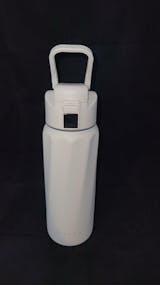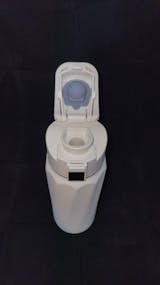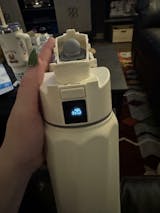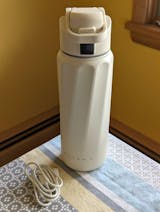
Breathe Easier: How Proper Hydration Supports Better Respiratory Health?
Most of us know the importance of a balanced diet, regular exercise, and getting enough sleep when it comes to staying healthy. However, one aspect that’s often overlooked is hydration. While it’s common knowledge that drinking water is crucial for overall health, many don’t realize how directly it impacts our respiratory system. Proper hydration plays a key role in supporting better respiratory health, from thinning mucus to aiding in the immune system’s fight against infections. Let’s explore the connection between hydration and breathing—and why staying hydrated could help you breathe easier.
The link between hydration and respiratory health

Water is essential for nearly every system in the body, and the respiratory system is no exception. Our lungs rely on hydration to function at their best. Water helps moisten the airways, ensuring mucus remains thin and easily cleared from the lungs. This is vital for healthy lung function and the efficient exchange of gases—oxygen in and carbon dioxide out.
When the body is properly hydrated, the airways remain open, allowing for smooth airflow. However, when we’re dehydrated, the mucus in the lungs can become thick and sticky, making it much harder for the body to clear it out. This can lead to congestion, difficulty breathing, and an increased risk of respiratory infections.
Benefits of hydration for common respiratory issues
Proper hydration can be especially beneficial for individuals with chronic respiratory conditions, such as asthma, Chronic Obstructive Pulmonary Disease (COPD), and seasonal allergies.
Asthma
For those with asthma, hydration can be a game-changer. When airways are dry, they become more prone to inflammation and constriction, leading to asthma flare-ups. Staying hydrated helps maintain the moisture in the airways, making it easier to breathe. Hydration can also reduce mucus buildup, which can worsen asthma symptoms. Drinking water throughout the day helps to thin the mucus, making it easier to clear from the lungs.
Chronic obstructive pulmonary disease (COPD)
COPD, which includes emphysema and chronic bronchitis, often leads to thick lung mucus, making breathing harder. Proper hydration is critical for people with COPD because it helps thin the mucus, reduces the need for coughing, and improves airflow. Staying hydrated also supports lung function, reducing the risk of respiratory infections that can exacerbate the condition.
Seasonal allergies
When pollen counts are high, many people suffer from allergy symptoms like coughing, sneezing, and nasal congestion. While hydration won’t cure allergies, it can make symptoms more manageable. Drinking plenty of water helps thin the mucus in the nasal passages and lungs, making it easier to expel. Staying hydrated also supports the immune system, helping the body cope better with allergens.
The role of water in the body`s detoxification and immune system
Water is often referred to as a detoxifier. It helps flush out toxins from the body, which can directly benefit respiratory health. When dehydrated, toxins like bacteria and pollutants can build up in the lungs, leading to inflammation and respiratory distress. Drinking plenty of water helps clear these toxins more efficiently, reducing the strain on your lungs and helping to prevent infection.
Moreover, hydration is essential for maintaining a strong immune system. The body’s immune cells depend on adequate hydration to function properly, especially when fighting infections like the common cold, flu, or respiratory viruses. Staying hydrated strengthens your body's natural defenses, reducing the risk of developing respiratory infections that can lead to more serious complications.
Signs of dehydration that affect breathing

Dehydration can have several noticeable effects on the body, some directly impacting the respiratory system. Common signs of dehydration include:
- Dry mouth: One of the earliest signs of dehydration, dry mouth can also contribute to thickening mucus in the respiratory system, making it harder to breathe.
- Thick mucus: Dehydrated individuals often experience thicker, stickier mucus, leading to congestion and coughing.
- Shortness of breath: When your airways become dry or blocked with thick mucus, taking deep, full breaths can be difficult.
- Wheezing: Dehydration can make it harder for the lungs to expand fully, leading to wheezing or a tight feeling in the chest.
If you notice these signs, it may be time to drink more water. Maintaining proper hydration can help alleviate these symptoms and promote easier breathing.
Tips for staying hydrated for better respiratory health
Maintaining proper hydration is simple, but it’s essential to stay consistent. Here are some practical tips to ensure you're drinking enough water to support your respiratory health:
How much water should you drink?
While the “8 glasses a day” rule is a good baseline, individual hydration needs vary based on activity level, climate, and age. Aim for about half your body weight in ounces of water each day as a general guideline. For example, if you weigh 150 pounds, drink around 75 ounces of water daily. You may need more if you live in a hot climate or exercise regularly.
Best hydration practices for respiratory health
To keep your lungs and airways functioning optimally, don’t wait until you’re thirsty to drink. Make hydration a regular part of your routine—sip water throughout the day, even if you don’t feel thirsty. This ensures your respiratory system stays consistently supported.
It’s also important for those with respiratory conditions to balance water with electrolytes. This can prevent the body from becoming over-hydrated or losing essential minerals, which is especially important during physical activity.
Foods that support hydration
Certain foods, in addition to water, can help with hydration. Fruits and vegetables like watermelon, cucumbers, and oranges are packed with water and can contribute to your daily hydration goals. Herbal teas, broths, and even water-rich snacks like popsicles can support your hydration.
Hydration myths and misconceptions about respiratory health
There are many myths surrounding hydration and respiratory health, so it’s important to separate fact from fiction.
-
Myth 1: Drinking excessive amounts of water will instantly cure respiratory conditions.
Fact: While staying hydrated is essential, it’s not a cure-all. It supports lung function, but managing respiratory diseases requires a comprehensive treatment plan. -
Myth 2: Only water counts as hydration.
Fact: While water is the best hydrator, other beverages like herbal teas, coconut water, and foods like fruits and vegetables can also help keep you hydrated. -
Myth 3: You can't reverse the damage once you're dehydrated.
Fact: It’s never too late to start hydrating. Drinking water throughout the day can significantly improve your respiratory health and overall well-being, even if you are dehydrated.
Conclusion
Proper hydration is essential for maintaining good respiratory health. Water plays a crucial role in keeping your lungs and airways functioning properly, from reducing the risk of asthma flare-ups to helping your body fight off infections. Whether managing a chronic respiratory condition or simply looking to breathe easier, drinking enough water throughout the day can make a difference. So, the next time you take a breath, remember that staying hydrated can help you breathe a little easier. Drink up—and your lungs will thank you. Following WaterH to find more tips for staying well hydrated.

















